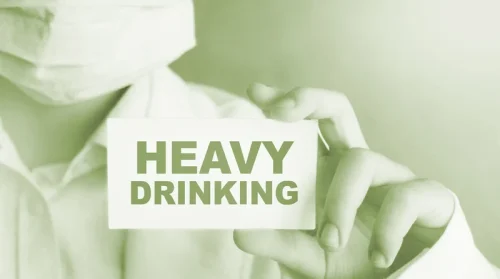
Adolescents are also likely to binge drink, which can lead to serious consequences, including injury and death. Alcohol use disorder is diagnosed on the basis of criteria defined in the fifth edition of the Diagnostic and Statistical Manual of Mental Disorders (DSM-5). The DSM is a guide that describes and classifies mental disorders, published and updated regularly by the American Psychiatric Association and used as a tool by medical professionals. For men, this low-risk range is defined as no more than 4 drinks on a given day and no more than 14 per week. See your doctor if you begin to engage in behaviors that are signs of alcohol use disorder or if you think that you may have a problem with alcohol.
What questions should I ask my healthcare provider?

Recovering from alcohol addiction is a process that continues long after rehab. It takes commitment to practice and applying the techniques you learn in rehab, counseling, support groups, and other types of therapy. Though at-risk and binge drinking can result in a range of adverse consequences, not all people who engage in these kinds of unhealthy https://ecosoberhouse.com/ alcohol use have alcohol use disorder. Loved ones are an integral part of the addiction recovery process, but they need to balance their own needs in addition to providing support. To do that, they can set boundaries around their emotional, physical, and financial relationship, for example that the house will remain an alcohol-free zone.
What is the outlook for people who have alcohol use disorder?
While the exact causes of alcoholism are not known, a number of factors can play a role. The condition is likely the result of a combination of genetic, social, alcoholism psychological, and environmental factors. Not only does AUD affect the health of the person with the disease, but it also impacts the lives of those around them.
Alcoholism Short & Long-Term Physical Health Issues
With all alcoholic beverages, drinking while driving, operating an aircraft or heavy machinery increases the risk of an accident; many countries have penalties for drunk driving. Choosing to seek help for an alcohol addiction is one of the biggest decisions you will face. There are different forms of treatment available based on frequency of alcohol consumption and severity of alcohol abuse.
- Talk to your healthcare provider if you’re under stress and think you may be at risk for relapse.
- People in the latter category are often genetically predisposed to alcohol use disorder.
- Your gut microbiome is a hotbed of bacteria that help keep your digestive system happy and healthy.
- Alcoholism, now known as alcohol use disorder, is a condition in which a person has a desire or physical need to consume alcohol.
Mutual Support Groups
Even a mild disorder can lead to problems, so treatment is important. People with severe or moderate alcohol use disorder who suddenly stop drinking could develop delirium tremens (DT). It can be life-threatening, causing serious medical issues like seizures and hallucinations that require immediate medical care. A common initial treatment option for someone with an alcohol addiction is an outpatient or inpatient rehabilitation program. It can help someone handle withdrawal symptoms and emotional challenges.
- The harm may be physical or mental; it may also be social, legal, or economic.
- Eventually, you can develop permanent and irreversible scarring in your liver, which is called cirrhosis.
- For example, drinking during difficult times – a death in the family or job loss – can potentially trigger long-term alcohol abuse.
- For example, thanks to their ability to form resonance structures, phenols are way more acidic than normal alcohols.
- A simplistic definition calls alcoholism a disease caused by chronic, compulsive drinking.
What are the risk factors?

The Problem With Calling Someone an “Alcoholic”
Treatment and Medication Options for Alcohol Use Disorder
What Are the Types of Treatment for Alcohol Use Disorder?
